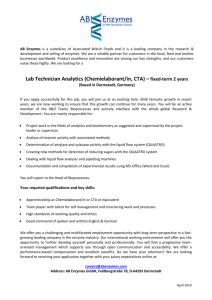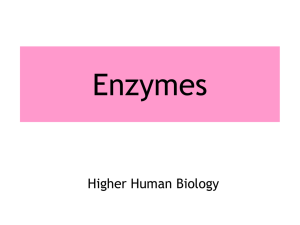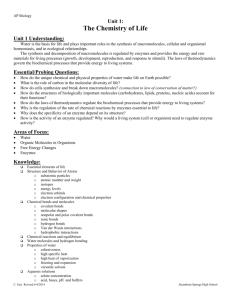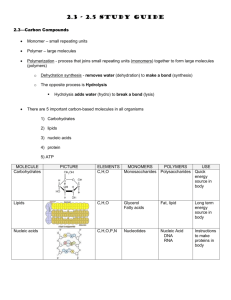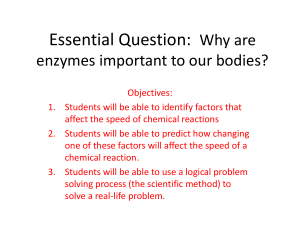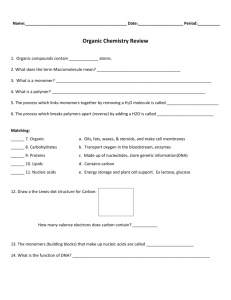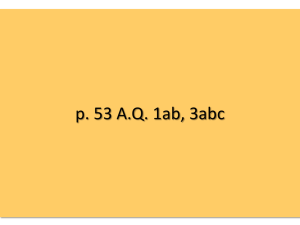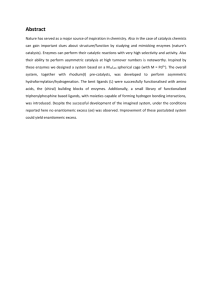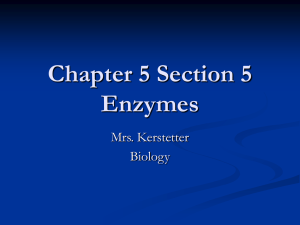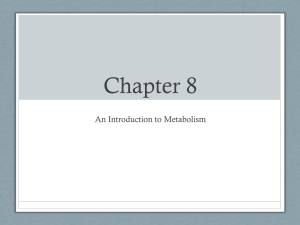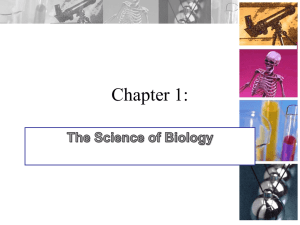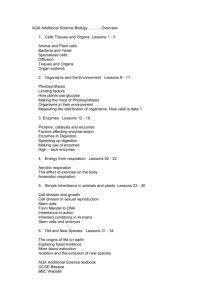Chemical Reactions and Enzymes Notes
advertisement
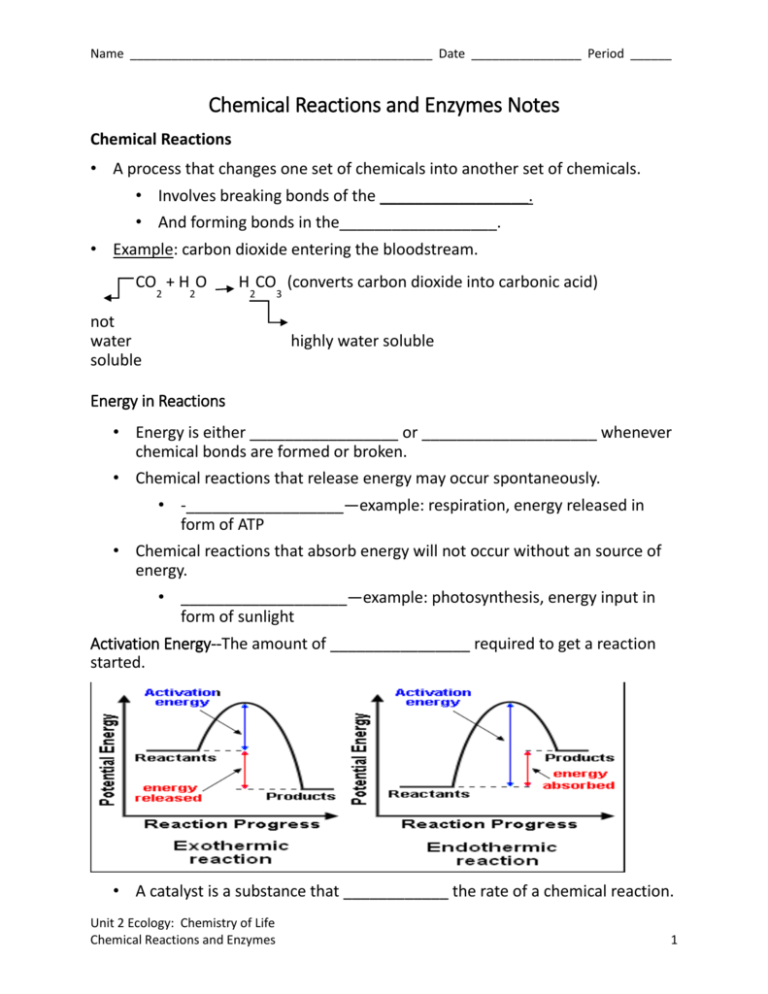
Name ____________________________________________ Date ________________ Period ______ Chemical Reactions and Enzymes Notes Chemical Reactions • A process that changes one set of chemicals into another set of chemicals. • Involves breaking bonds of the _________________. • And forming bonds in the__________________. • Example: carbon dioxide entering the bloodstream. CO + H O 2 2 H CO (converts carbon dioxide into carbonic acid) 2 not water soluble 3 highly water soluble Energy in Reactions • Energy is either _________________ or ____________________ whenever chemical bonds are formed or broken. • Chemical reactions that release energy may occur spontaneously. • -__________________—example: respiration, energy released in form of ATP • Chemical reactions that absorb energy will not occur without an source of energy. • ___________________—example: photosynthesis, energy input in form of sunlight Activation Energy--The amount of ________________ required to get a reaction started. • A catalyst is a substance that ____________ the rate of a chemical reaction. Unit 2 Ecology: Chemistry of Life Chemical Reactions and Enzymes 1 Name ____________________________________________ Enzymes • Enzymes are _________________s that act as biological ___________________. • Enzymes speed up chemical reactions that take place in cells. • Enzymes work by lowering the _______________________________. • ________________ the activation energy effects how quickly the reaction is completed. Enzyme Action • Enzymes provide a __________ where reactants can be brought together to react. • The reactants of enzyme catalyzed reactions are called ________________. • The substrate(s) bind to the site on the enzyme called the ___________________. • Once the reaction is complete, the products of the reaction are _________________ and the enzyme is free to _______________ the process over again. Unit 2 Ecology: Chemistry of Life Chemical Reactions and Enzymes 2 Name ____________________________________________ Enzyme Action Regulation of Enzyme Activity • Enzymes can be affected by any variable that influences chemical reactions including _________ and ___________________________. • Most cells contain ________________________ that help turn key enzymes “on” and “off” at critical stages in the life of the cell. • Enzymes play essential roles in ___________________________ chemical pathways, making materials that cells need, releasing _____________, and transferring _______________________________. Unit 2 Ecology: Chemistry of Life Chemical Reactions and Enzymes 3
